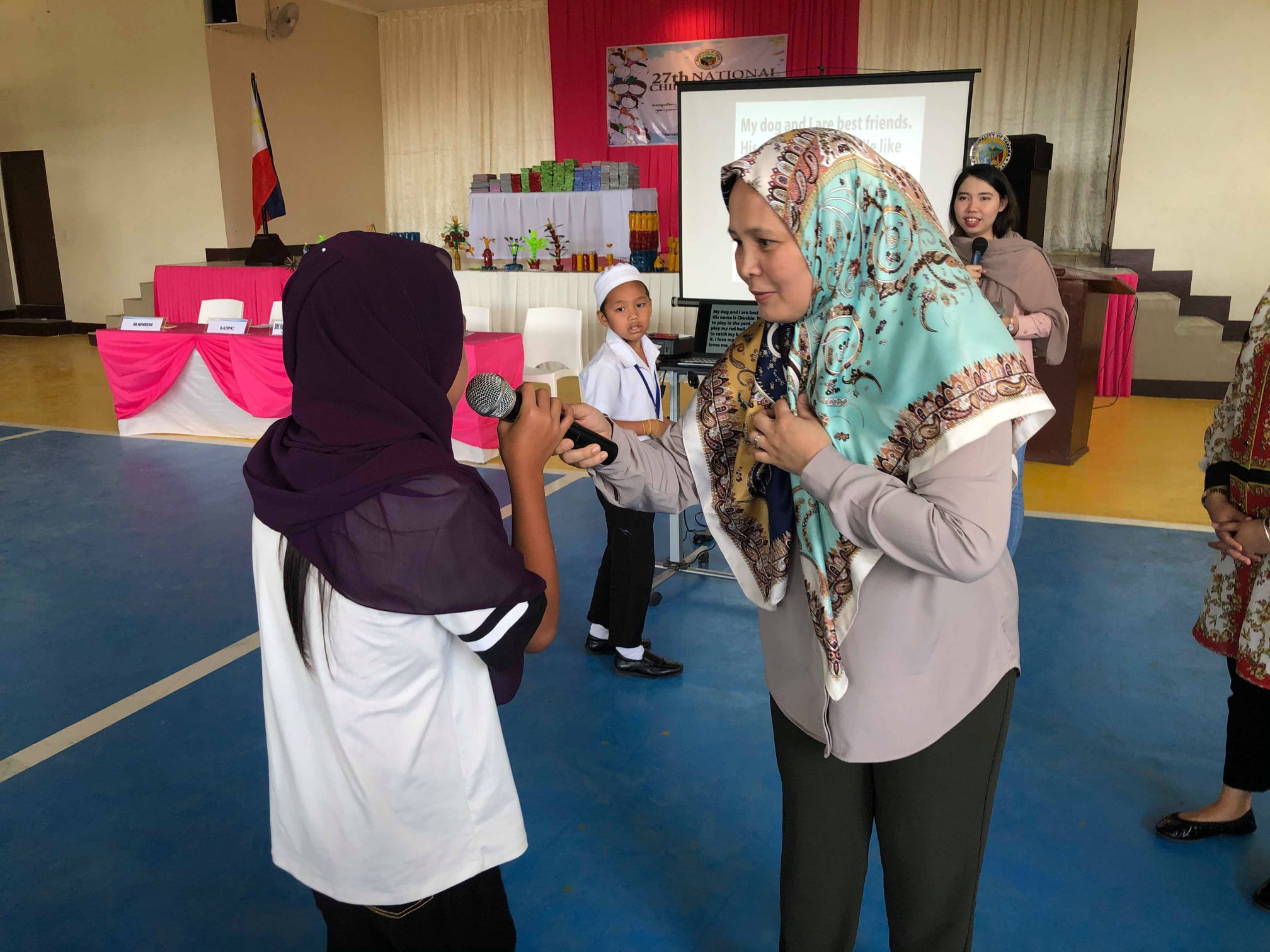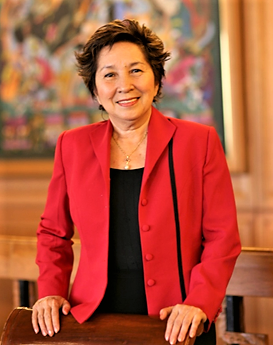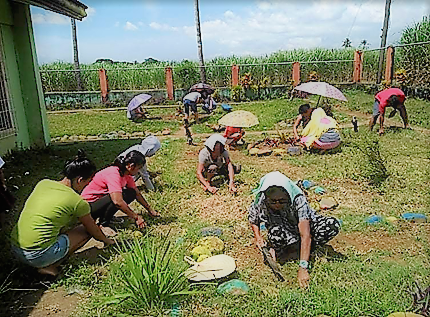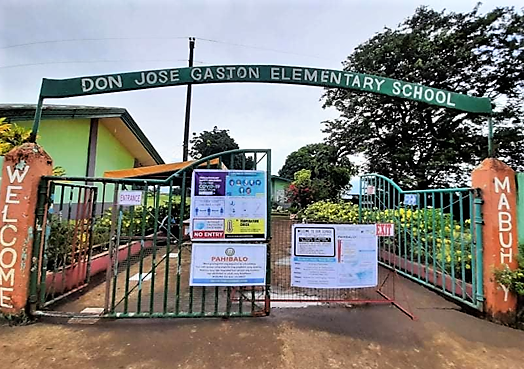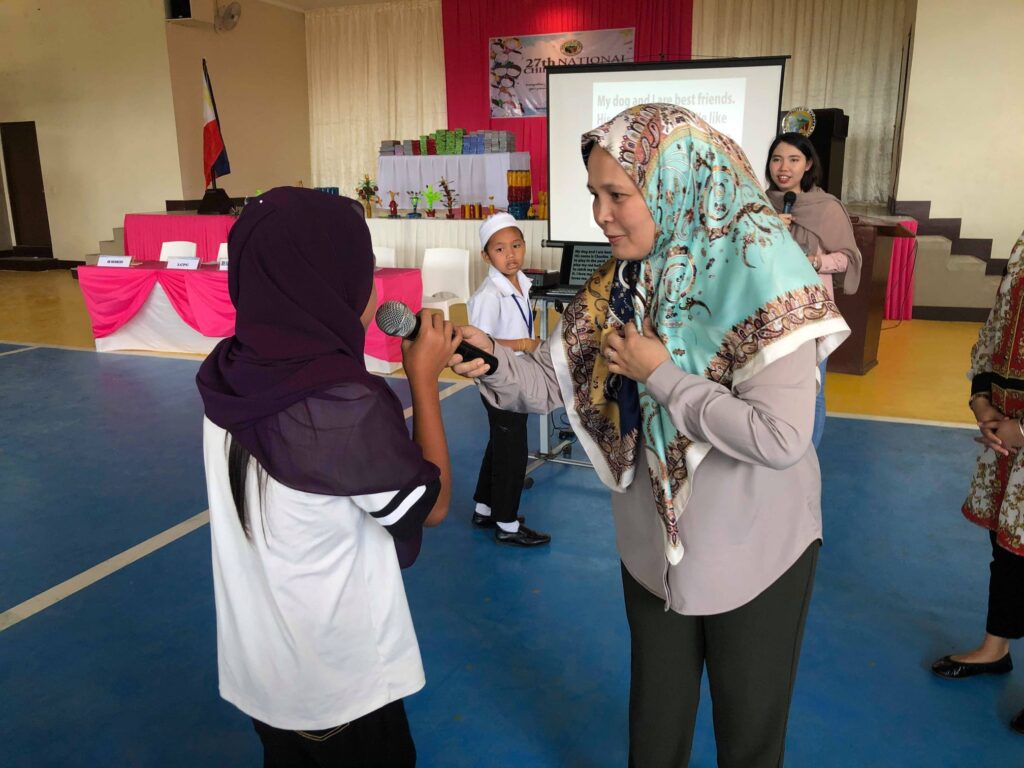
Before one reaches the Central Eementary School in the Muncipality of Taraka, Lanao Del Sur, one has to pass thru a canal located just near the school entrance. Among the many urban legends connected to that canal is the strange tale that once you throw a coin into it, the water will miraculously turn from brown to crystal clear . That is why when the SYNERGEIA team visited the Muncipality of Taraka for a meeting with the different school governing councils, we did try to throw a coin into the canal, with the hope perhaps of proving the legend true.
Of course, nothing happened. The water remained brown as ever.
But if one does want to see a sense of transformation in the Muncipality , then one need not throw a coin into that muddied canal. What one needs to do is see how education in the municipality is getting clearer with each passing day, thanks to the imaginative leadership of the Mayor Nashiba G. Sumagayan.
Being a former professor herself, Mayor Nashiba is a hands on Local Chief executive when it comes to making sure that education reforms are carried within her area. She often visits the schools under her care. She makes sure that teachers do come to school and perform their duties. She regularly calls for teacher meetings to assess not only the performance of the learners, but also to monitor the performance of the teachers’ themselves.
She has also taken the initiative of not relying too much on the municipality’s Special Education Fund to fund the education projects of the community. Knowing full well, the difficulty of collecting real property taxes in the region, she has learned to set aside a portion of the general fund to meet the challenges of improving the state of education. She has also proactively looked for other sources of funds to support their programs.
This type of grounded leadership is one of the main strengths of the Local School Board of the Municipality of Taraka. Surely it has contributed to Muncipality being awarded as one of the recipients of Synergeia’s 2018 Seal of Good Edication Governance Award.
But Mayor Nashiba’s leadership does not end with herself. She has encouraged every member of the Local school board to be involved and to participate in all the education programs of the Muncipality. She believes that coordination and cooperation are the main ingredients of a functioning school board.
To make this work, regular Local School Board meetings are held . Issues are openly discussed and solutions are vigorously debated upon.
The regularity of the school boards’ meeting and their proactive approach to issues has borne fruit during the Covid19 crisis. The board took the initiative of distributing relief packs to all the learners of the municipality. They have also began planning on releasing printed learning and reading materials to address the concerns of parents regarding the availability of study materials this coming school year.
An involved local chief executive and an empowered local school board can indeed transform muddied minds into minds capable of clearer thinking.
So next time, one visits the municipality of Taraka, instead of throwing your coin into the muddied water canal near the Central Elementary School and hope for a miraculous change of color, may I suggest that you go straight to the school itself.
Perhaps, you may be lucky enough to see what transformation is all about.



